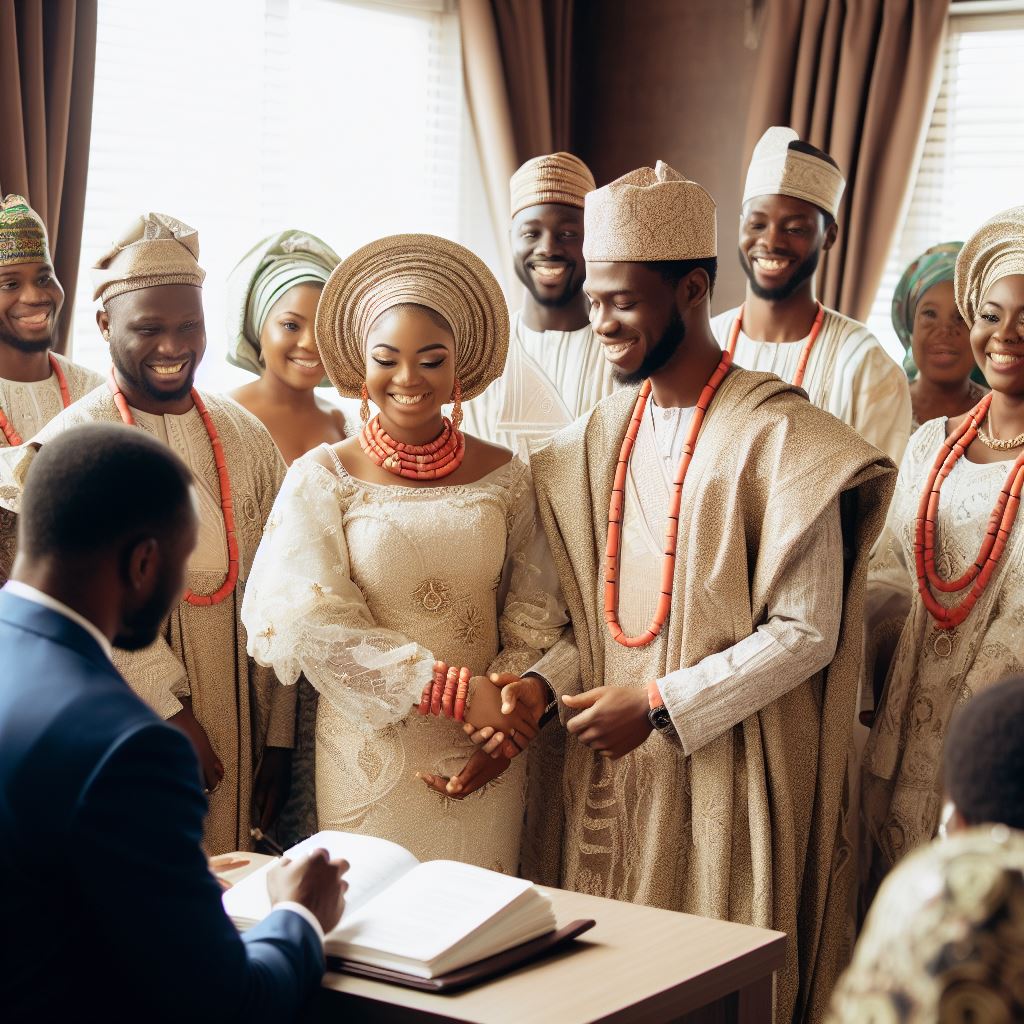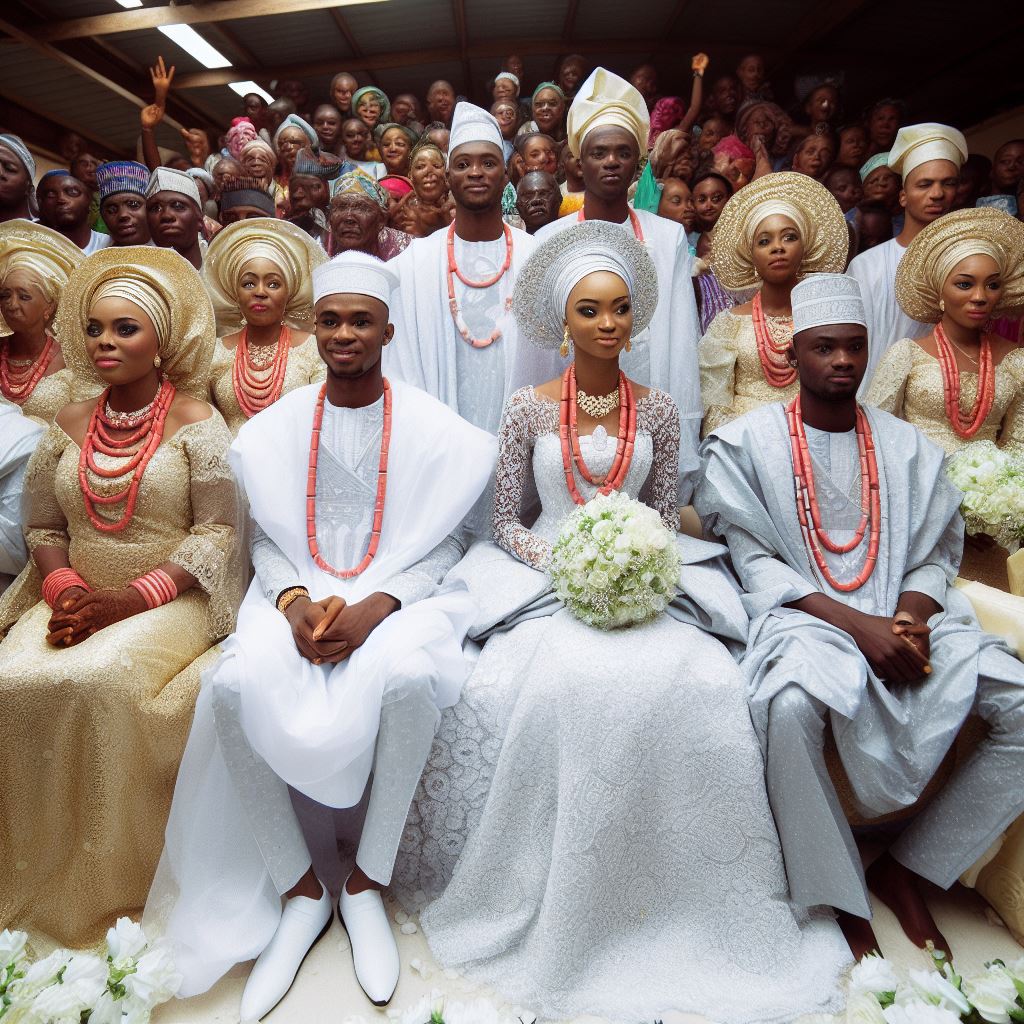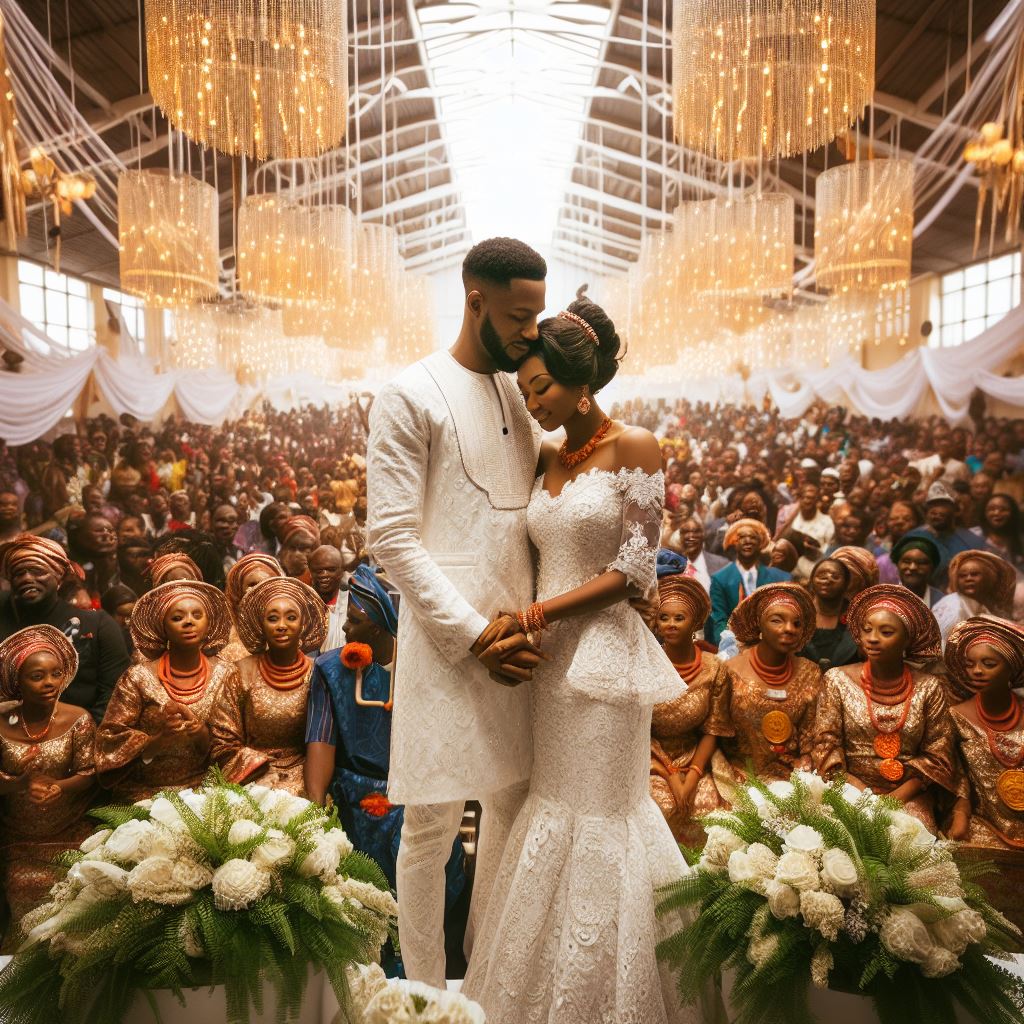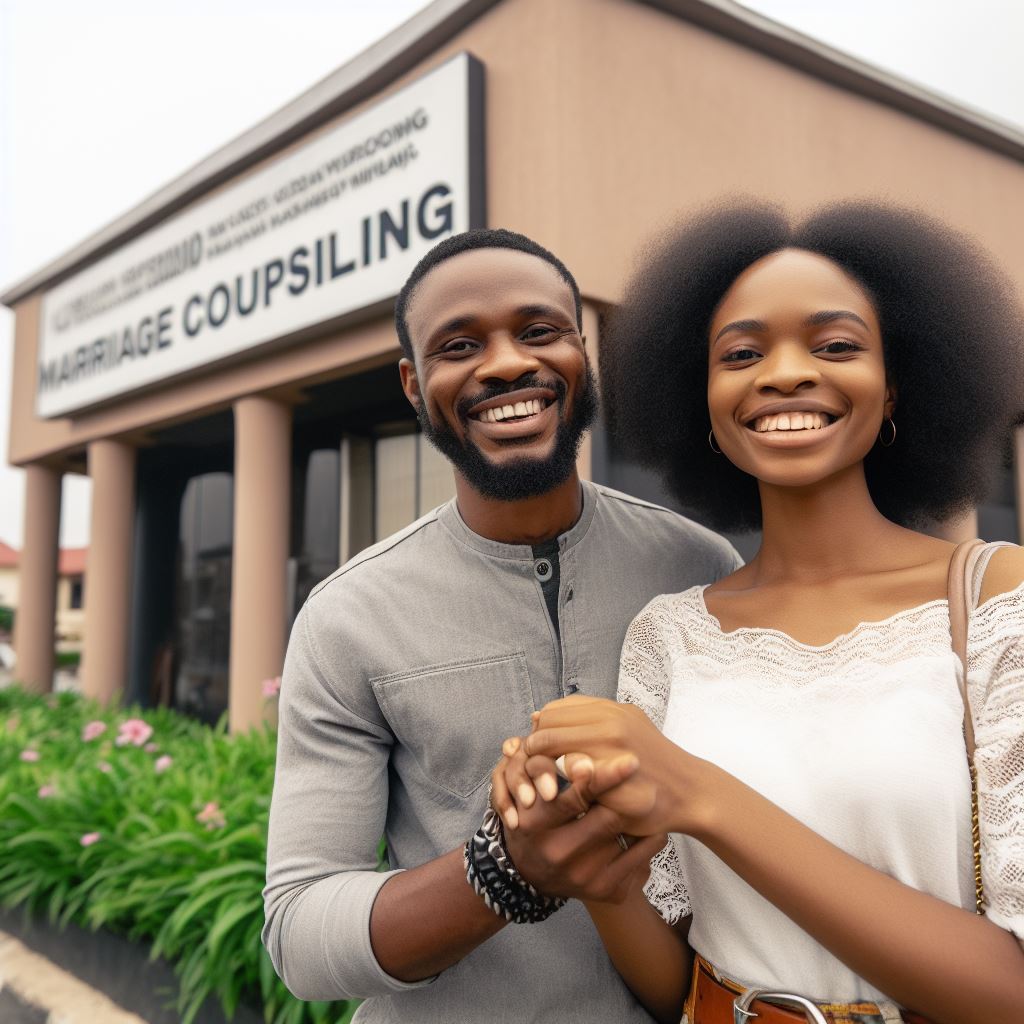Introduction
Cultural Implications of Marriage by Ordinance in Nigeria encompass the legal framework through which couples solemnize their unions.
This type of marriage involves adhering to the guidelines outlined in the Marriage Act, which governs the legal procedures and requirements to create a valid marriage.
The blog post aims to delve into the cultural ramifications of selecting Marriage by Ordinance in Nigeria.
By exploring this topic, we can gain a better understanding of how this choice affects individuals and communities in the country.
The cultural implications of Marriage by Ordinance in Nigeria are numerous.
This form of marriage often contrasts with traditional marriage customs and religious practices.
While it embraces a more Westernized approach to marriage, it can clash with traditional cultural values and beliefs.
Choosing Marriage by Ordinance can lead to social consequences, as it challenges societal expectations and traditional family structures.
It may create tensions among family members, as the decision to marry under the Marriage Act can be seen as a rejection of customary laws and practices.
Furthermore, this type of marriage can influence gender dynamics within relationships and families, potentially challenging traditional gender roles and expectations.
It can empower women by providing legal protection and rights, but it may also raise issues surrounding inheritance and property rights.
Basically, examining the cultural implications of opting for Marriage by Ordinance in Nigeria offers valuable insights into the interaction between modern legal systems and traditional cultural values.
Understanding these dynamics is essential for appreciating the complexities of marriage in Nigeria today.
Traditional Cultural Beliefs and Practices
Overview of traditional marriage practices in Nigeria
- Traditional marriage plays a vital role in Nigerian society.
- It involves customary laws, rituals, and ceremonies specific to each ethnic group.
- Prior to the wedding, families of the bride and groom negotiate the terms of marriage.
- Traditional rites like the payment of bride price and exchange of gifts are important.
- Marriage is seen as a union not just between two individuals but also between families.
Importance of preserving cultural values in Nigerian society
- Cultural values define a society’s identity and provide a sense of belonging.
- Preserving these values helps maintain social cohesion and harmony.
- Traditional marriage practices reinforce cultural values and foster community integration.
- They ensure continuity of cultural heritage and promote intergenerational bonds.
- Such practices are considered a source of pride for Nigerians as they celebrate their diversity.
Cultural implications of “Marriage by Ordinance” in relation to traditional practices
- The rise in the number of couples opting for “Marriage by Ordinance” reflects changing societal values.
- This legal form of marriage is influenced by Western ideologies and religious diversity.
- It allows individuals to marry outside their ethnic groups and ignore traditional rituals.
- While it promotes personal freedom, it raises concerns about cultural erosion and identity loss.
- Traditional beliefs and practices play a crucial role in shaping Nigerian cultural identity.
Generally, traditional cultural beliefs and practices regarding marriage in Nigeria hold immense significance.
These practices define the essence of Nigerian society, ensuring continuity of cultural heritage and fostering community integration.
However, the emergence of “Marriage by Ordinance” presents a shift towards more liberal approaches influenced by Western ideologies and religious diversity.
While this legal form of marriage promotes personal freedom and choice, it raises concerns about cultural erosion and identity loss.
As Nigeria embraces modernization, it is essential to strike a balance between preserving cultural values and allowing individuals to exercise their rights and preferences in marriage.
Read: Steps to Register a ‘Marriage by Ordinance’ in Nigeria: A Guide
Legal Framework for Marriage in Nigeria
Overview of the legal provisions for marriage in Nigeria
- Nigeria has a legal framework that governs marriages conducted within its jurisdiction.
- These provisions lay down guidelines and requirements for a valid and recognized marriage.
- The main laws that regulate marriages in Nigeria are the Marriage Act and the Matrimonial Causes Act.
- The Marriage Act applies to Christian marriages, while the Matrimonial Causes Act applies to all marriages.
- These laws outline the procedures for marriage registration, including the issuance of marriage certificates.
- Marriages conducted in accordance with these laws are legally recognized and provide certain benefits and protections.
“Marriage by Ordinance” as an alternative to traditional customs
- “Marriage by Ordinance” refers to marriages conducted in accordance with the Marriage Act.
- It is an alternative to traditional customs and cultural practices that may vary across different ethnic groups in Nigeria.
- By opting for marriage by ordinance, couples choose to follow a standardized procedure provided by the law.
- Marriage by ordinance ensures legal recognition of the union, regardless of cultural or religious differences.
Comparison of legal marriage and traditional marriage in terms of legal rights and obligations
- Legal marriage provides couples with legal rights and obligations that are recognized by the Nigerian legal system.
- These rights include property ownership, inheritance, and access to social security benefits.
- Legal marriage also grants couples the right to divorce, subject to the conditions specified in the Matrimonial Causes Act.
- Traditional marriage, on the other hand, may not always provide legal recognition or protection for the couple.
- Traditional marriages may involve customary practices and rituals, but these may not be recognized by the law.
- As a result, couples in traditional marriages may face challenges in asserting their legal rights or seeking legal remedies.
Essentially, the legal framework for marriage in Nigeria provides couples with the option to choose “Marriage by Ordinance” as an alternative to traditional customs.
This ensures legal recognition and protection of their union, regardless of cultural or religious differences.
Legal marriage grants couples various rights and obligations that are recognized by the Nigerian legal system, providing them with access to property, inheritance, social security benefits, and the option of divorce.
On the other hand, traditional marriages may not always offer the same legal recognition and protection, potentially limiting couples’ ability to assert their legal rights.
Therefore, the choice of “Marriage by Ordinance” offers a more secure and legally recognized foundation for couples in Nigeria.
Read: The Legal Requirements of a ‘Marriage by Ordinance’ in Nigeria
Reasons for Choosing “Marriage by Ordinance”
Marriage, a sacred institution that has been celebrated in various cultures and societies throughout history, holds great significance in Nigeria.
However, in recent times, there has been a growing trend towards choosing “Marriage by Ordinance” over traditional marriage ceremonies.
This shift can be attributed to several reasons, each influencing individuals in their decision-making process.
A shift towards modernization and globalization
A significant reason for this shift towards “Marriage by Ordinance” is the impact of modernization and globalization.
Nigeria, as a developing nation, has witnessed rapid changes in its social and cultural fabric.
Western influences have seeped into society through various means, including media and technology.
As a result, individuals are becoming more open to embracing practices and ideas that are widely accepted in Western countries.
Desire for legally recognized marriages and benefits
Additionally, the desire for legally recognized marriages and the benefits that come with it have fueled the preference for “Marriage by Ordinance.”
In Nigeria, obtaining a marriage certificate grants couples legal recognition and protection.
It ensures that their union is valid and acknowledged by the state, allowing them to enjoy various benefits, including inheritance rights, health insurance, and tax advantages.
This legal recognition provides a sense of security and stability for couples, making “Marriage by Ordinance” an attractive option.
Influence of Western culture and ideologies
The influence of Western culture and ideologies cannot be undermined in the evolution of marriage practices in Nigeria.
Western concepts of individualism, gender equality, and personal choice have permeated Nigerian society, altering traditional norms and values.
The idea of a couple coming together solely based on love and mutual consent, rather than societal pressures or family arrangements, is becoming more widespread.
Moreover, the increasing exposure to Western media, such as television shows, movies, and social media platforms, has shaped perceptions and expectations surrounding marriage.
The portrayal of romantic relationships and marriages in Western media as desirable and ideal has contributed to the desire for a “modern” and “westernized” marriage experience.
It is essential to recognize the potential cultural implications of choosing “Marriage by Ordinance” in a society deeply rooted in tradition.
While this shift reflects the changing dynamics of Nigerian society and the aspirations of individuals, it also raises questions about the preservation of cultural heritage and the potential erosion of traditional practices.
In general, the reasons for choosing “Marriage by Ordinance” in Nigeria are multi-faceted.
The influence of modernization and globalization, the desire for legal recognition and benefits, and the impact of Western culture and ideologies all contribute to this emerging trend.
While this shift reflects changing attitudes and values, it is crucial to strike a balance between embracing societal progress and preserving cultural traditions.
Read: Expert Tips for a Smooth ‘Marriage by Ordinance’ Registration Process

Uncover the Details: A Nigerian Wedding: A Tapestry of Culture and Love
Delve into the Subject: The Beauty of Commitment: Analyzing Nigerian Vows
Challenges and Concerns
In the process of choosing “marriage by ordinance” in Nigeria, there are various challenges and concerns that arise which need to be addressed:
Resistance from traditional communities and cultural preservationists
- The traditional communities in Nigeria might resist the idea of “marriage by ordinance.”
- They perceive it as a threat to their cultural practices and traditions.
- There may be concerns about the erosion of their customary marriage practices.
- Resistance may also stem from the fear of losing cultural identity and heritage.
- It is essential to engage with these communities and preservationists to develop mutual understanding.
Potential clash between legal and cultural frameworks
- The adoption of “marriage by ordinance” might lead to a clash between legal and cultural frameworks.
- Legal frameworks may prioritize gender equality and individual rights, challenging traditional norms.
- Conflict might arise when legal provisions contradict or challenge deeply-rooted cultural beliefs.
- This clash emphasizes the need to find a balance between legal reforms and cultural sensitivity.
- Comprehensive dialogue and collaboration between legal and cultural experts are necessary to address this challenge.
Loss of traditional values and practices
- One concern regarding “marriage by ordinance” is the potential loss of traditional values.
- Traditional practices, rituals, and customs may gradually diminish or be neglected.
- Preserving cultural practices and values is crucial for intergenerational transmission of heritage.
- There is a risk of disconnecting from the rich cultural traditions that define Nigerian society.
- Efforts must be made to preserve traditional values while embracing legal reforms for a progressive society.
In essence, the adoption of “marriage by ordinance” in Nigeria presents challenges and concerns, including resistance from traditional communities, clashes between legal and cultural frameworks, and the potential loss of traditional values.
These challenges necessitate dialogue, understanding, and collaboration between the legal and cultural domains to find a harmonious balance that respects both cultural heritage and individual rights.
Read: Dealing with Family Pressures: Ordinance vs. Traditional Weddings
Advantages and Disadvantages of “Marriage by Ordinance”
Advantages in terms of legal rights, protection, and recognition
- Marriage by ordinance grants legal recognition and protection to couples.
- Couples enjoy inheritance rights, property rights, and legal status for their children.
- It provides a legal framework for resolving disputes and financial matters.
- The marriage is recognized by the state and facilitates access to government benefits.
- It offers stability to the relationship and establishes a formal commitment.
Disadvantages of moving away from cultural traditions and values
- Choosing marriage by ordinance may be seen as abandoning cultural heritage.
- It might lead to societal backlash and criticism from family members.
- Couples may face opposition due to cultural expectations and norms.
- Traditional values and customs could be marginalized or forgotten.
- The couple may feel disconnected from their cultural identity and sense of belonging.
Balancing the pros and cons: finding a middle ground
- Couples can consider incorporating elements of both traditional and ordinance marriage.
- They can seek legal recognition while still honoring cultural traditions and values.
- Open communication and understanding between partners and families is crucial.
- Cultural education and awareness within the community can promote acceptance.
- Couples should prioritize their individual happiness and future well-being.
In a nutshell, marriage by ordinance in Nigeria offers numerous advantages in terms of legal rights, protection, and recognition.
However, there are also disadvantages associated with moving away from cultural traditions and values.
It is essential to find a middle ground, balancing the pros and cons, to maintain cultural identity while enjoying the benefits of legal marriage.
Conclusion
Cultural Implications of ‘Marriage by Ordinance’ in Nigeria
In Nigeria, opting for ‘Marriage by Ordinance’ carries profound cultural ramifications.
It accelerates shifts in matrimonial customs and kinship structures, driving the erosion of traditional marriage norms.
This path promotes Western ideals, potentially diminishing local practices.
Preserving Cultural Heritage Amid Societal Changes
Preserving our rich cultural heritage is paramount.
While societal evolution is inevitable, it’s vital to balance modernity with our traditions.
The essence of Nigerian culture lies in unity, so maintaining our roots is crucial.
Encouraging Further Dialogue and Research
To navigate this delicate balance, continuous dialogue and research are essential.
We must explore the impact of ‘Marriage by Ordinance’ comprehensively.
Such investigations can guide policymakers in crafting legislation that respects our heritage.
All in all, the choice of ‘Marriage by Ordinance’ in Nigeria triggers a cultural transformation.
However, it’s our responsibility to safeguard our heritage while adapting to societal shifts.
Let’s encourage more research and dialogue to strike the right balance.




